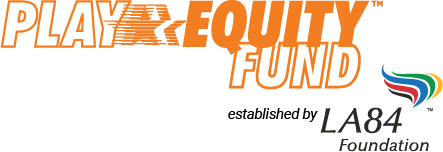Alliance Teen Town Hall
LOS ANGELES (Nov 18, 2020) – The ALLIANCE: Los Angeles held its virtual Town Hall kickoff event with student athletes from View Park High School and LA Promise Charter High School. This event introduced attendees to The Alliance Student Leadership Program that will be available to students at these two schools. Leaders from the 11 pro sports organizations that form The Alliance attended.
Both Gwen Berry and Johnathan Franklin shared their stories, as well as lessons learned through their involvement in sports and working in communities.
Olympian Gwen Berry spoke about her experience and decision to take stance on the podium. She aimed to “speak for the people who cannot speak for themselves.”
Former NFL and UCLA running back Johnathan Franklin, who currently serves as Director of Social Justice & Football Development for the Los Angeles Rams encouraged the students to embrace themselves. He told the students, “we have to know, that you are enough. Regardless of if you are the smartest if you are the most creative. All this is about is embracing your strengths. And every room you walk in, walk in as you.”
The Alliance and the Play Equity Fund have facilitated the Student Leadership Program, which uses sports as an entryway to leadership and advocacy for student athletes. The semester-long program develops changemakers who will build community power and affect systems.
The program’s curriculum was co-created by the Brotherhood Crusade and the Community Coalition. Curriculum objectives include training participants in organizing and identifying social issues to address, facilitating students’ understanding of community conditions and the systems that perpetuate inequality, fostering an advocate mindset and the knowledge and confidence to engage with policymakers, and gaining inspiration from fellow student athletes and professional athletes.
The Play Equity Fund is the only nonprofit worldwide dedicated to Play Equity as a social justice issue. Its mission is to bring the transformative power of sport and structured play to youth who have been left behind by the current system.
In neighborhoods with high poverty rates, opportunities to play – a globally recognized fundamental human right of childhood – oftentimes do not exist, particularly for kids of color.
Barriers to access include the elimination or reduction of enrichment of programs, budget challenges for afterschool programs including sports, safe passage to playgrounds, transportation, lack of trained and well-paid coaches and the rising costs of athletics and intramural programs. These factors severely limit access and opportunities for kids of color to build a pathway to lifelong well-being.
